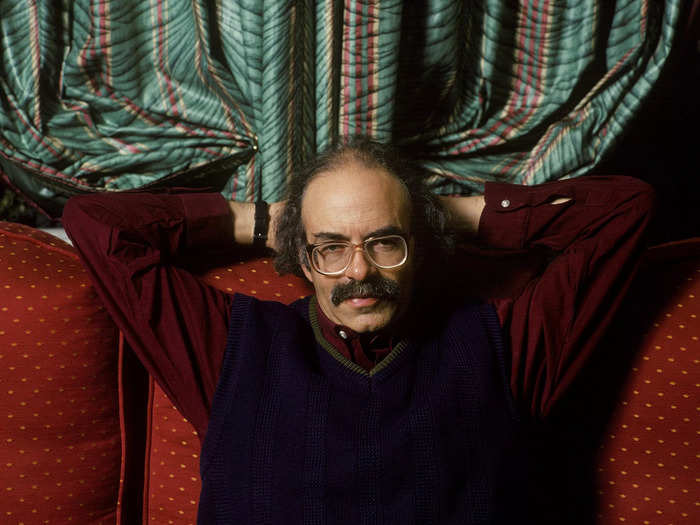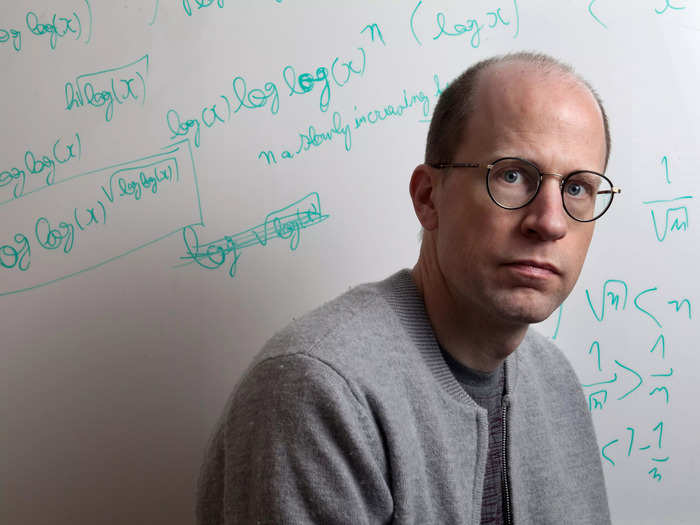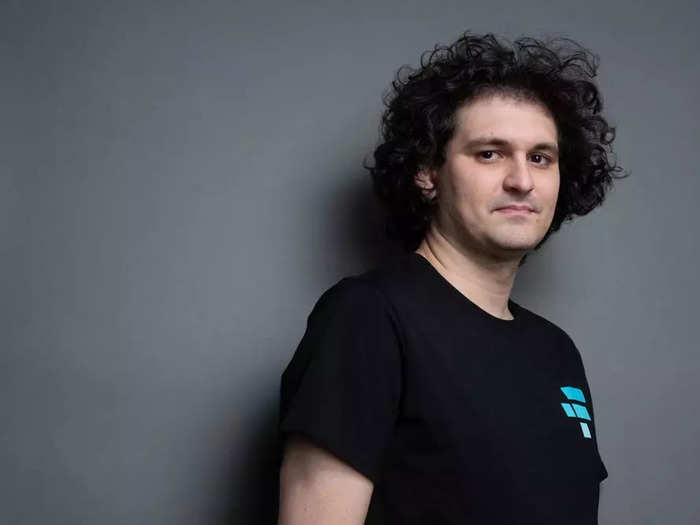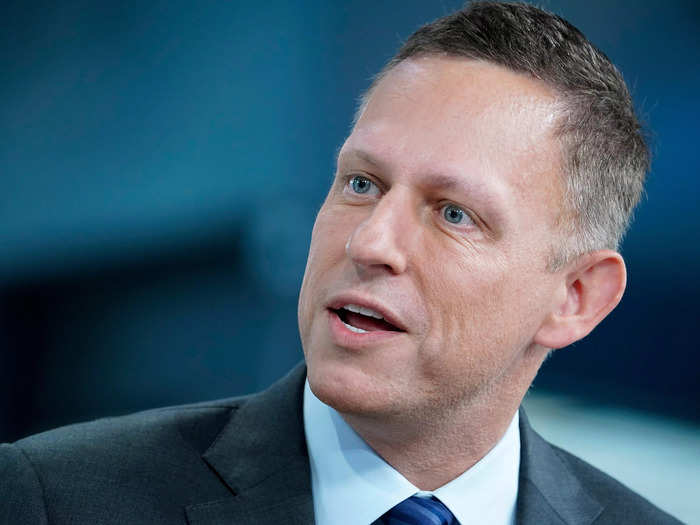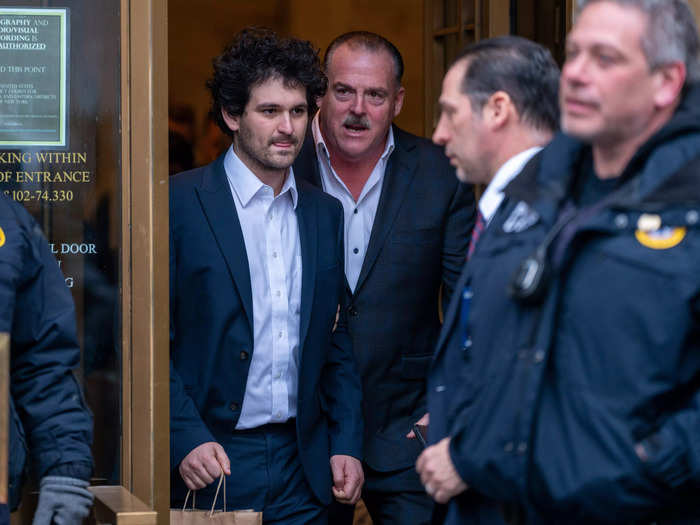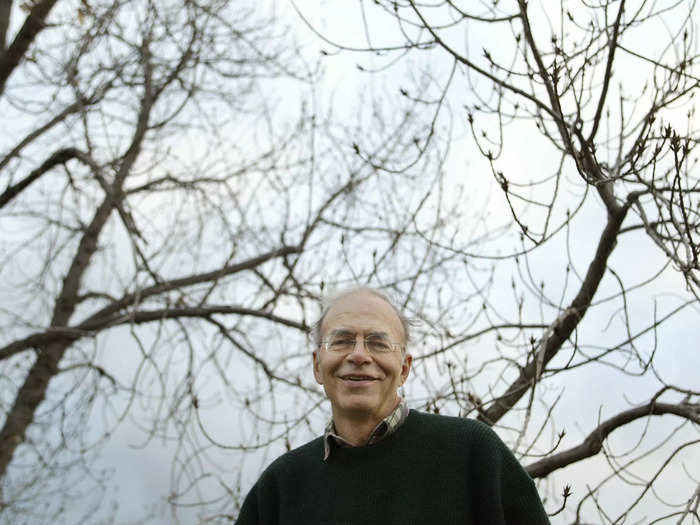Sam Bankman-Fried has long been a vocal proponent of EA.Craig Barritt/Getty Images for CARE For Special Children
- Effective altruism is a social movement that relies on evidence and reasoning to figure out the best ways to help others.
- Its supporters include major Silicon Valley tech personalities like Elon Musk, Sam Bankman-Fried, and Peter Thiel.
While he ran FTX, Sam Bankman-Fried lived beneath his billionaire means. He drove a Toyota Corolla, ate vegan food, and lived with several roommates — presumably due to his belief in a social movement called effective altruism.
Effective Altruism, or EA for short, stakes its claim in the idea that all lives are equally valuable and those with resources should allocate them to helping as many people as possible.
Over the past several years, it has found a strong footing in Silicon Valley, and claims tech tycoons like Elon Musk and Peter Thiel among its followers.
While EA also has its share of critics— who railed against its persistent focus on the future or its quiet acceptance of the status quo — the movement seemed to be growing. Over the course of 2021, EA-related foundations donated more than $600 million in publicly listed grants.
But then, FTX imploded. One of EA's most visible followers — who had once pledged to donate the majority of his wealth — has now been hit with eight criminal charges including wire fraud, money laundering, and violating campaign finance laws.
For many, it's brought the principles of effective altruism into question.
Here's a closer look at the ideas behind effective altruism and what philosophers and followers are saying in the aftermath:
EA broadly traces its roots to Peter Singer, a philosopher who is known for his radical ideas about morality.
Peter Singer is an Australian philosopher and professor at Princeton University. Ulf Andersen / Contributor/ Getty Images
Singer wrote that “if it is in our power to prevent something bad from happening, without thereby sacrificing anything of comparative moral importance, we ought to morally do it.” Even distance doesn’t matter.
Singer argued for people to push the boundaries of their moral compass in radical ways. Madcat Madlove / EyeEm/ Getty Images
By Singer’s philosophy, if you see a child drowning in a pond you likely don’t think twice before jumping in to save them, but allowing another child to drown miles away is just as harmful.
Singer argued that one has a moral obligation to save a child drowning in a pond regardless of location. Jodie Griggs/ Getty Images
EA also was influenced by Nick Bostrom, an Oxford philosopher who studied "existential risks" — outcomes that might "annihilate Earth-originating intelligent life" or "drastically curtail its potential."
Nick Bostrom, a Swedish philosopher and Oxford professor, is considered another early influencer of EA. The Washington Post / Contributor/ Getty Images
According to Bostrom, these include events like moderate global warming, global recessions, or even "stifling cultural or religious eras" like the "dark ages."
The stock market could continue to tumble in the face of rising inflation and a recession. sefa ozel/Getty Images
Since the 2010s, Scottish philosopher William MacAskill has largely been credited with leading the movement.
Screenshot from William MacAskill's personal website.
MacAskill is a professor of philosophy at Oxford University and he's also the author of books on effective altruism including 'Doing Good Better' and 'What We Owe The Future.'
William MacAskill is a professor at Oxford University. Andrei Nekrassov/Shutterstock
He co-founded the Center for Effective Altruism at Oxford, and a YCombinator backed nonprofit called 80,000 Hours, that claims to help people make a social impact with their career through research and advice. Since September 2022, both have been grouped under a broader parent organization called Effective Ventures.
MacAskill has founded several endeavors with the presumable goal of helping people direct their wealth to helping others. Getty Images
While MacAskill suggests that people should set out to do the most good that they can, he argues their actions should be based on empirical evidence and not subjective definitions. One way of measuring good is through quality-adjusted-life-years, or QALYS. One QALY is equivalent to a single year of life lived at 100% health.
QALYS are measured on a scale of 0 to 1 with a score of 1 being a year of perfect health. Anna Fomenko/ Getty Images
MacAskill estimated that contributing to the cause of removing intestinal parasites would be more cost-effective than contributing to a sight-saving eye operation in terms of QALYS.
MacAskill estimated that contributing to removing intestinal worms would have more impact in terms of QALYS than a sight-saving operation. BRIAN MITCHELL/ Getty Images
EA has also become associated with the idea of "earning to give." The idea is that a college graduate can save more lives by taking a job in finance or consulting and donating their earnings, as opposed to becoming a doctor and trying to help people in a developing country.
"Earning to give" suggests that it might be better for young graduates to take jobs in finance as opposed to becoming doctors in developing countries. Photo by Michael M. Santiago/Getty Images
One of the more controversial ideas of EA is longtermism, which is the notion that people should be working toward improving the future of humanity. Weak longtermism applies to concerns about the near future, while strong longtermism applies to concerns about the distant future— thousands of years from now.
Longtermism prioritizes addressing the issues that will impact the future of humanity. Yuichiro Chino/ Getty Images
In an op-ed in the New York Times from August 2022, William MacAskill outlined longtermist concerns such as fossil fuel depletion, losing control over artificial intelligence systems, or the emergence of virulent, engineered viruses.
One of the concerns of longtermism is losing control over artificial intelligence systems. Andriy Onufriyenko/Getty Images
There are a growing number of organizations dedicated to combating these threats, sometimes called “existential risks” or “x-risks” in light of Bostrom’s research. These include the Center for the Study of Existential Risk and Bostrom’s own Future of Humanity Institute at Oxford.
Alistair Berg/ Getty Images
The movement also has birthed nonprofits like GiveDirectly and GiveWell.
GiveDirectly is an EA related nonprofit. SOPA Images / Contributor/ Getty Images
Over the years, EA has racked up its share of followers in Silicon Valley. In August 2022, Elon Musk tweeted in support of MacAskill's new book, 'What We Owe the Future.'
Sam Bankman-Fried long positioned himself as a staunch follower of the movement, and even pledged to give away the majority of his wealth one day.
Sam Bankman-Fried cofounded FTX in 2019. FTX
Peter Thiel gave the keynote address at the Effective Altruism Summit in 2013 and is a known funder of “x-risk” research.
Peter Thiel is a known backer of "x-risk" research. John Lamparski/Getty Images
Yet critics have railed against the way EA has developed over the years. In a review of MacAskill's book, 'Doing Good Better,' his colleague at Oxford, philosophy professor Amia Srinivasan wrote, "Effective altruism has so far been a rather homogenous movement of middle-class white men fighting poverty through largely conventional means."
Amia Srinivasan, a philosophy professor, critiques MacAskill's Doing Good Better in the London Review of Books. Screenshot from Amia Srinivasan's Twitter profile.
In a later section, she wrote, "If effective altruism is simply in the business of getting us to be more effective when we try to help others, then it's hard to object to it. But in that case it's also hard to see what it's offering in the way of fresh moral insight, still less how it could be the last social movement we'll ever need."
Source: London Review of Books
After Sam Bankman-Fried's crypto empire exploded in November, more and more people began to question the effective altruism movement. MacAskill himself posted a thread on Twitter responding to the controversy. In one tweet he wrote:
In another tweet, he wrote "As a community, too, we will need to reflect on what has happened, and how we could reduce the chance of anything like this from happening again. Yes, we want to make the world better, and yes, we should be ambitious in the pursuit of that."
He added, "But that in no way justifies fraud. If you think that you're the exception, you're duping yourself."
Members of the Effective Altruism community— writing on the movement's official website — were concerned and shocked in the immediate aftermath of FTX's demise, according to The New Yorker.
More EA followers voiced their opinions on the Effective Altruism Forum. Lisa-Blue/ Getty Images
In a post on the Effective Altruism forum from November 2022, Jack Lewars wrote:
"FTX's demise is understandably dominating EA discussion at the moment. Like everyone in the community, I'm primarily just really sad about the news. A lot of people have been hurt; and a lot of funding that could have been used to do a staggering amount of good is no longer available."
The author proceeded to outline potential reforms to the movement including recruiting more diversifying funding sources taking "optics" more seriously.
Sources: The New Yorker and Effective Altruism Forum
Then, Sam Bankman-Fried himself spoke about his relationship to ethics at large. Vox's Kelsey Piper asked Bankman-Fried, "the ethic's stuff— mostly a front?" to which Bankman-Fried initially responded, "yeah" followed by "I mean that's not *all* of it" and "but it's a lot."
Sam Bankman-Fried is currently awaiting trial for multiple criminal charges. David Dee Delgado/Getty Images
In a later section Piper asked, "you were really good at talking about ethics, for someone who kind of saw it all as a game with winners and losers." To which Bankman-Fried initially responded "ya" and "hehe" and "I had to be."
Source: Vox
In an interview with The Guardian in December 2022, the movement's forefather, Peter Singer, came to the defense of EA, but also acknowledged the harm the FTX controversy brought to the movement. He said, "I think in general, a lot more good has been done by earning-to-give than harm, at least up until the collapse of FTX, which has certainly caused a lot more harm than any other [example]."
Peter Singer, often considered the forefather of EA, gave an interview in The Guardian in December. The AGE / Contributor/ Getty Images
He also said, "wise, effective altruists and utilitarians know that honesty is the best policy."
Source: The Guardian

